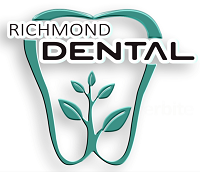Bad breath is embarrassing when it occurs during social or workplace situations. or making you feel nervous while talking. Bad breath is something that can affect daily life and confidence.
The positive side is that most of these cases have straightforward reasons and can be treated very effectively. Taking proper care and adopting the right habits can encourage fresh breath.
This article will discuss the reasons behind bad breath, how it can be treated, and what works, so you can breathe easily again.
What Causes Bad Breath?
Bad breath, or halitosis, may have a variety of causes. The most frequent cause is poor oral hygiene. When bacteria and food particles accumulate on your teeth, tongue, and gums, they produce odoriferous gases. Dry mouth, which diminishes the production of cleansing saliva, is another contributing factor.
Other possible causes of bad breath are:
- Gum disease
- Smoking or tobacco
- Some foods, such as garlic and onions
- Medical conditions like sinus infections or acid reflux
The first step to finding the correct treatment is identifying the cause.
Which Bad Breath Remedies Work?
There are several ways to control bad breath, but not all are equal. The most effective bad breath remedies begin with good oral hygiene. Brushing twice a day, flossing, and tongue cleaning eliminate bacteria and food particles.
Some other effective remedies are:
- Drinking ample of water to avert dry mouth
- Staying away from strong-smelling foods
- Sucking on sugarless gum to create saliva
- Adding a humidifier if dry air is a problem
Don’t cover up bad breath with mints only. Work on eradicating the cause instead.
What Are the Best Halitosis Treatments?
Halitosis treatment depends on what’s causing the bad breath. If it’s from poor hygiene, regular brushing and flossing may be enough. If gum disease or an infection is the source, professional dental care is necessary. Dentists may suggest deep cleanings, prescription rinses, or treatment for cavities and gum issues.
For persistent halitosis, your dentist might recommend tests to rule out underlying medical conditions. A treatment plan is most effective when it’s customized to your needs.
Daily Oral Hygiene Tips for Fresh Breath
Simple changes in your daily routine can make a big difference. The following oral hygiene tips for fresh breath can help:
- Use a soft-bristled toothbrush and fluoride toothpaste
- Replace your toothbrush every three months
- Clean between your teeth daily with floss or interdental brushes
- Don’t forget to gently brush your tongue
- Visit your dentist for regular checkups and cleanings
A clean mouth is less likely to produce bad odours.
Is Mouthwash a Real Solution?
Yes, but not all are created equal. A mouthwash for bad breath can help, especially those with antibacterial ingredients like chlorhexidine or cetylpyridinium chloride. These rinse away bacteria and leave your mouth feeling fresher.
Alcohol-free options are better for people with dry mouth, as they are less likely to irritate or dehydrate their tissues.
However, mouthwash should support, not replace, brushing and flossing. Use it as a part of a complete hygiene routine, not as a stand-alone fix.
When Should You See a Dentist?
If you’ve tried at-home remedies and your breath still smells bad, it’s time to consult a professional. A dentist in SW Calgary can identify hidden dental issues like plaque buildup, infections, or oral dryness.
They can also help if your halitosis is linked to something outside your mouth, such as stomach or sinus problems.
A dental visit can bring peace of mind and a clear path to fresher breath.
Wrapping Up!
Dealing with bad breath can be frustrating, but the right approach makes all the difference. With consistent hygiene, professional support, and a focus on root causes, fresher breath is within reach.
Fresh Breath Begins with Good Care
Book an appointment today with Richmond Dental Clinic and let our team help you breathe with confidence.

